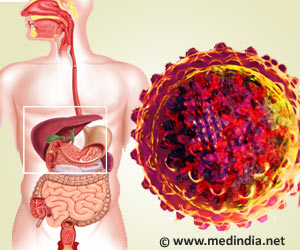The human protein CD47, found on almost all mammalian cell membranes, binds to a macrophage receptor known as SIRPa in humans. This was shown in 2008 by Discher's group.

Since the publication of that study, other researchers determined the combined structure of CD47 and SIRPa together. Using this information, Discher's group was able to computationally design the smallest sequence of amino acids that would act like CD47. This "minimal peptide" would have to fold and fit well enough into the receptor of SIRPa to serve as a valid passport.
After chemically synthesizing this minimal peptide, Discher's team attached it to conventional nanoparticles that could be used in a variety of experiments.
"Now, anyone can make the peptide and put it on whatever they want," Rodriguez said
The research team's experiments used a mouse model to demonstrate better imaging of tumors and as well as improved efficacy of an anti-cancer drug-delivery particle.
As this minimal peptide might one day be attached to a wide range of drug-delivery vehicles, the researchers also attached antibodies of the type that could be used in targeting cancer cells or other kinds of diseased tissue. Beyond a proof of concept for therapeutics, these antibodies also served to attract the macrophages' attention and ensure the minimal peptide's passport was being checked and approved.
The test of this minimal peptide's efficacy was in mice that were genetically modified so their macophages had SIRPa receptors similar to human. The researchers injected two kinds of nanoparticles — ones carrying the peptide passport and ones without — and then measured how fast the mice's immune system cleared them.
Even giving therapeutic nanoparticles an additional half-hour before they are eaten by macrophages could be a major boon for treatments. Such nanoparticles might need to make a few trips through the macrophage-heavy spleen and liver to find their targets, but they shouldn't stay in the body indefinitely. Other combinations of exterior proteins might be appropriate for more permanent devices, such as pacemaker leads, enabling them to hide from the immune system for longer periods of time.
While more research is necessary before such applications become a reality, reducing the peptide down to a sequence of only a few amino acids was a critical step. The relative simplicity of this passport molecule to be more easily synthesized makes it a more attractive component for future therapeutics.
"It can be made cleanly in a machine," Discher said, "and easily modified during synthesis in order to attach to all sorts of implanted and injected things, with the goal of fooling the body into accepting these things as 'self.'"
Source-Eurekalert
 MEDINDIA
MEDINDIA




 Email
Email








